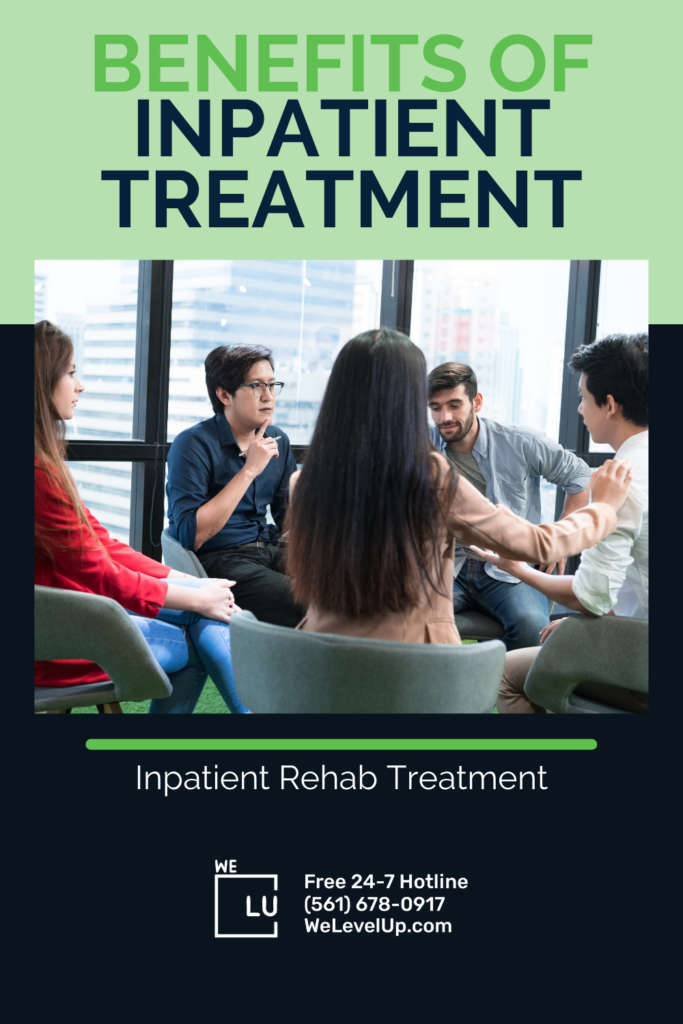How Can I Find Inpatient Substance Abuse Treatment Near Me?
Receiving substance abuse treatment is crucial because it provides individuals with the necessary support, guidance, and tools to overcome their addiction and achieve long-term recovery. Treatment also addresses the underlying factors contributing to substance abuse, such as co-occurring mental health disorders, helping individuals address their overall well-being.
Moreover, substance abuse treatment can significantly improve an individual’s quality of life by restoring relationships, enhancing physical and mental health, and fostering personal growth and stability.
For assistance in locating effective substance abuse treatment options in your vicinity or obtaining a second opinion regarding the necessity of addiction treatment for yourself or a loved one, please contact our admissions navigators. Our team is dedicated to promptly providing information on treatment options, offering additional free resources, and guiding you in making informed decisions about your following action.
We Level Up Substance Abuse Treatment Facilities Locator
We Level Up substance abuse treatment centers aim to foster long-term success in addiction recovery and mental health services. Through a commitment to evidence-based treatment and the continuous enhancement of therapeutic modalities, we strive to achieve better outcomes in behavioral rehabilitation. Our top-rated rehab centers are located at:
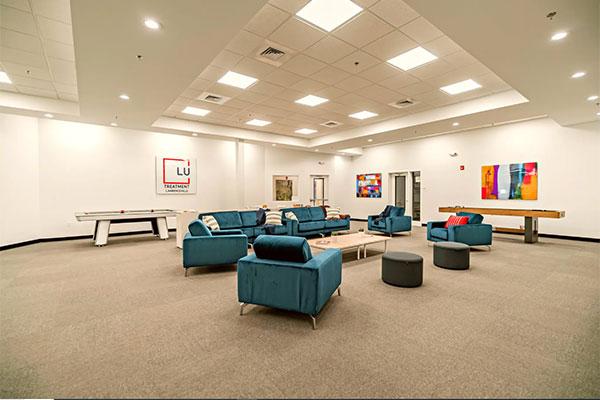
We Level Up New Jersey
Drug & Alcohol Addiction Treatment Center w/Detox
Licensed & Accredited w/ 5-star reviews.- Inpatient addiction rehab center w/medical detox
- Addiction treatment and detox for alcohol, benzo, heroin, opioid, and more.
- Secondary mental health treatment available as part of our dual diagnosis programs.
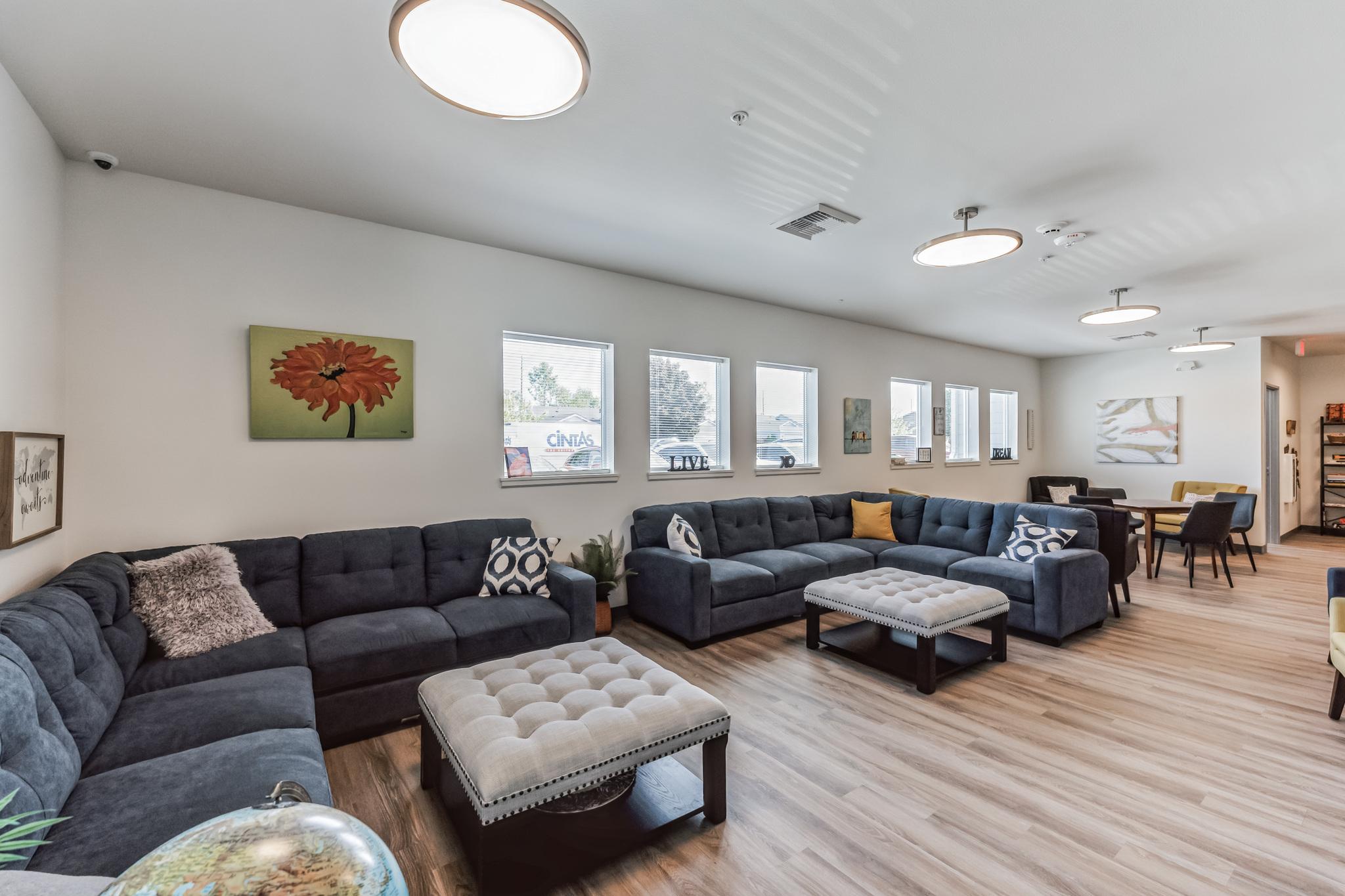
We Level Up Washington
Premier Behavioral Health Treatment Center
Licensed & Accredited w/ 5-star reviews.- Inpatient mental health treatment center
- Therapy for depression, anxiety, trauma, bipolar disorder, PTSD, and more.
- Dual diagnosis rehab programs available
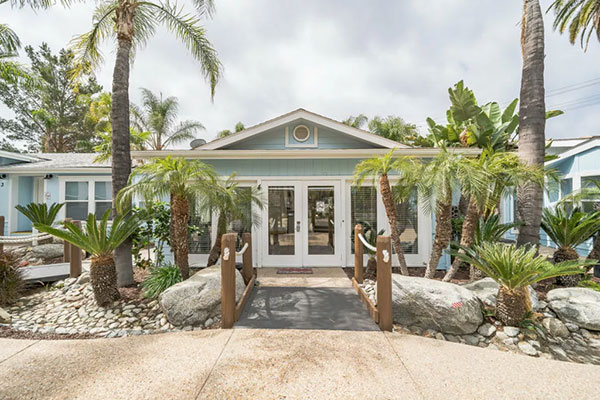
We Level Up California
Drug & Alcohol Addiction Treatment Center w/Detox
Licensed & Accredited w/ 5-star reviews.- Inpatient addiction rehab center w/medical detox
- Addiction treatment and detox for alcohol, benzo, heroin, opioid, and more.
- Secondary mental health treatment available as part of our dual diagnosis programs.
As a prominent and highly acclaimed network of accredited detox centers, addiction rehab facilities, and dual diagnosis behavioral health centers, We Level Up is at the forefront of providing exceptional care. The We Level Up substance abuse treatment network is well known for its local community support and treatment of clients that travel to our specialty programs from across the country.
Our esteemed residential addiction centers and mental health facilities are dedicated to saving lives through comprehensive programs that combine intensive integrated psychotherapy, peer support groups, and evidence-based approaches encompassing medical and spiritual treatments. We offer custom recovery therapy from medically-assisted detoxification to residential inpatient rehab facilities.
What Is Substance Use Disorder?
Substance use disorder (SUD) is a complex and chronic condition characterized by problematic substance use leading to clinically significant impairment or distress. It involves the recurrent use of substances such as alcohol, illicit drugs, or prescription medications in a compulsive, harmful manner and difficult to control.
Diagnostic criteria for substance use disorder include:
- Impaired control over substance use.
- Continued use despite negative consequences.
- Tolerance.
- Withdrawal symptoms.
- Increasing preoccupation with substance-related activities.
SUD is recognized as a multifactorial disorder influenced by genetic, environmental, and psychosocial factors, requiring comprehensive assessment and evidence-based substance abuse treatment approaches.
What Are The 4 Risk Factors For Substance Abuse?
There are various risk factors associated with substance abuse. Here are four commonly recognized risk factors:
- Genetic and Biological Factors: Certain genetic and biological predispositions, including a family history of substance abuse, can increase the risk of developing substance abuse disorders.
- Environmental Factors: Environmental influences such as exposure to peer pressure, easy access to substances, dysfunctional family dynamics, and socioeconomic factors can contribute to the likelihood of substance abuse.
- Mental Health Conditions: Co-occurring mental health disorders, such as anxiety, depression, or trauma-related disorders, can increase vulnerability to substance abuse as individuals may turn to substances as a form of self-medication.
- Early Substance Use: Early initiation of substance use, especially during adolescence, when the brain is still developing, is considered a significant risk factor for developing substance abuse problems later in life.
Does Insurance Cover Substance Abuse Treatments?
When individuals are trapped in the clutches of a substance use disorder, their focus is solely on seeking help, and complex admissions processes can hinder their access to crucial medical treatment. Fortunately, our streamlined admissions process, supported by insurance verification systems, ensures that obtaining the necessary care is hassle-free.
By simplifying admissions and intake procedures, we aim to save time and offer rapid rehab insurance checks, enabling same-day admissions at our esteemed addiction and mental health centers.
Pre-Admission To Substance Abuse Treatment
Everyone entering substance abuse treatment receives a clinical assessment. A complete evaluation of an individual is needed to help treatment professionals offer the treatment that best suits them. The evaluation also helps program specialists work with the person to design an effective treatment plan. Although clinical assessment continues throughout a person’s treatment, it starts at or just before admission to a treatment program.
The counselor will begin by gathering information about the person, asking many questions such as those about:
- Kinds, amount, and length of time of substance or alcohol use.
- Educational background and needs.
- Current living situation and environment.
- Employment history, stability, concerns, and needs.
- Cultural issues around the use of alcohol or drugs.
- Effects of alcohol and drug use on the person’s life.
- Medical history.
- Family and social problems and needs.
- Legal or financial problems.
- School performance, references, and wants, if relevant.
- Current medical problems or needs.
- Current medications (including pain medication).
- Mental health issues or behavioral problems.
- Previous treatment experiences or attempts to quit drug or alcohol use.
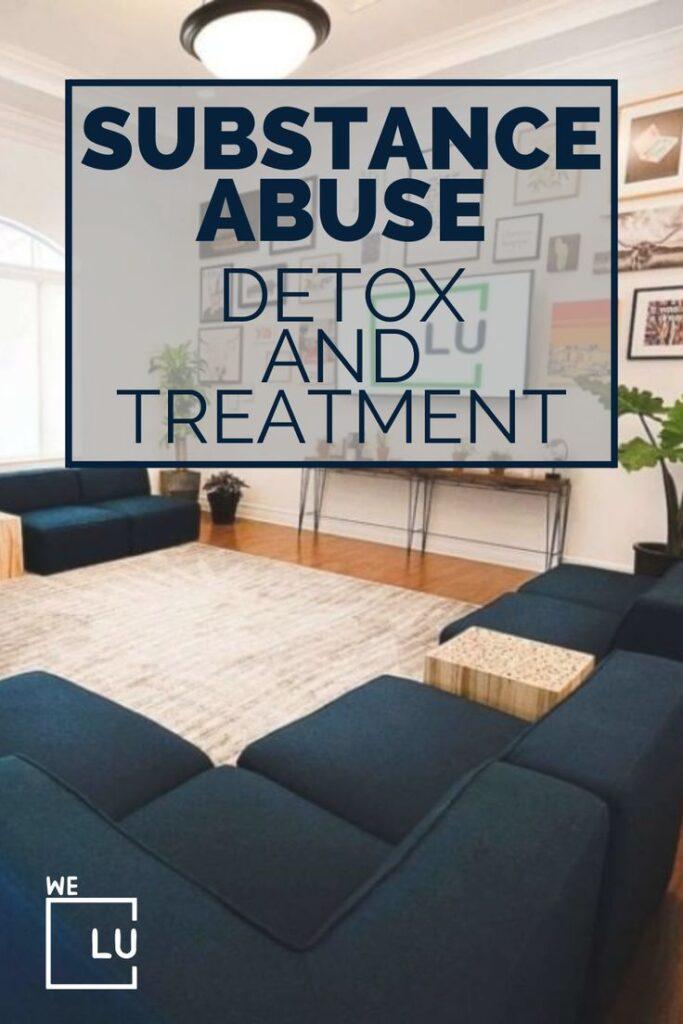
Skip To:
Learn More:
- Family Therapy For Addiction & Substance Abuse
- Substance Abuse Detox Centers
- Aftercare Programs For Substance Abuse & Addiction
- Substance Abuse Treatment Center And Programs
- Medication-Assisted Treatment. Medication Assisted Treatment for Opioid Use Disorder, MAT Program for Alcohol, FAQs & Facts.
- Discover Top-Rated Drug & Alcohol Medical Detox Near Me, Licensed Accredited Programs. Find Top-rated Detox Near Me Treatment Centers.
- Treatment Activities To Do During Recovery
- We Level Up Rehab Insurance Covered Treatment Programs
- What Is Substance Use Disorder? Symptoms & Treatment
- What Is Inpatient Rehab & How To Find Facilities Near You
How To Prove Substance Abuse In Court?
Many individuals seek treatment for substance abuse when they are already confronted with legal problems, as the legal consequences often serve as a motivating factor for them to address their addiction and pursue recovery. Proving substance abuse in court typically involves presenting compelling evidence and testimonies. This may include documenting substance-related behaviors, such as drug test results, medical records indicating substance abuse, eyewitness accounts, and tangible evidence like drug paraphernalia.
How Effective Is Substance Abuse Inpatient Treatment?
Substance abuse inpatient treatment has demonstrated effectiveness in facilitating recovery from addiction. The structured and immersive nature of inpatient programs allows for comprehensive evaluation, detoxification if necessary, and intensive therapeutic interventions.
Inpatient treatment provides a supportive and controlled environment that minimizes access to substances and focuses on addressing underlying issues contributing to addiction. Research suggests that longer durations of inpatient treatment tend to yield better outcomes. Combined with aftercare support, such as aftercare programs and community resources, it further enhances the effectiveness of the overall substance abuse treatment approach.
Substance Abuse Treatment Plan Fact Sheet
Levels Of Substance Abuse Treatment Programs
The required level of care for yourself or your loved one’s addiction recovery will depend on the severity of the addiction, and it may involve one or multiple levels of treatment. The various types of rehab programs that incorporate therapy are as follows:
- Detoxification: Medically managed detox programs aid in stabilizing patients and alleviating withdrawal symptoms during the initial phase of recovery. The duration of detox programs can range from a few days to several weeks. Once stabilization is achieved, patients may proceed to an inpatient program.
- Inpatient/Residential Rehab: Inpatient and residential rehab programs provide a live-in environment where patients receive supervised treatment and follow structured care plans to overcome addiction. These programs typically span a few weeks to several months and may be followed by outpatient rehab. Depending on the program, patients may receive round-the-clock monitoring from licensed professionals.
- Outpatient Rehab & Intensive Outpatient Programs: Outpatient programs allow individuals to attend therapy sessions and receive treatment at their convenience without needing to reside at a facility. Treatment can occur at substance abuse treatment centers, community health clinics, hospital-affiliated clinics, or other designated facilities. Outpatient programs involve regular meetings and can accommodate personal, family, and professional responsibilities, with some programs even offering evening and weekend options.
The specific rehab program best suited for an individual should be determined through consultation with addiction professionals, considering their unique needs and circumstances.
Types Of Substance Abuse Treatment
Although treatment programs differ, the essential ingredients of substance abuse treatment are similar. Therefore, most programs include many or all elements presented below.
- Medical Care: Programs in hospitals can provide this care on-site. Other outpatient or residential programs may have doctors and nurses visit the program site for a few days each week, or a person may be referred to different places for medical care. Medical care typically includes screening and treating HIV/AIDS, hepatitis, tuberculosis, and women’s health issues.
- A Treatment Plan: The treatment team and the person in treatment develop a treatment plan based on the assessment. A treatment plan is a written guide to treatment that includes the person’s goals, treatment activities designed to help them meet them, ways to tell whether a program has been completed, and a timeframe for meeting goals.
- Group and Individual Counseling: Initially, individual counseling focuses on motivating the person to stop using drugs or alcohol. Treatment then shifts to helping the person stay drug and alcohol-free.
- Education About Substance Use Disorders: People learn about the symptoms and the effects of alcohol and drug use on their brains and bodies.
- Life Skills Training: This training can include learning and practicing employment skills, leisure activities, social skills, communication skills, anger management, stress management, goal setting, and money and time management.
- Testing for Alcohol or Drug Use: Program staff members regularly take urine samples from people for drug testing. Some programs are starting to test saliva instead of urine. They also may use a breathalyzer to test people for alcohol use.
- Relapse Prevention Training: Relapse prevention training teaches people how to identify their relapse triggers, how to cope with cravings, how to develop plans for handling stressful situations, and what to do if they relapse. Motivation is anything that makes a person crave a drug. Triggers often are connected to the person’s past use, such as a person they used drugs with, a time or place, drug use paraphernalia (such as syringes, a pipe, or a bong), or a particular situation or emotion.
- Assessment: As discussed earlier, all treatment programs begin with a clinical evaluation of a person’s treatment needs. This evaluation helps in the development of an effective treatment plan.
- Orientation to Self-Help Groups: Participants in self-help groups support and motivate and encourage one another to become or stay drug and alcohol-free. Twelve-Step programs are the best-known self-help groups. These programs include Alcoholics Anonymous (AA), Narcotics Anonymous (NA), Cocaine Anonymous, and Marijuana Anonymous. Other self-help groups include SMART (Self Management and Recovery Training), Recovery, and Women for Sobriety.

Get Your Life Back
Find Hope & Recovery. Get Safe Comfortable Detox, Addiction Rehab & Dual Diagnosis High-Quality Care.
Hotline(844) 597-1011Substance Abuse Treatment Statistics
Alcohol is the primary substance of abuse for which people seek treatment, followed by marijuana and opioids. Research has shown that substance abuse treatment can effectively reduce substance use and improve overall functioning and quality of life. The effectiveness of treatment is determined by the individual’s level of motivation, the severity of the addiction, and the specific treatment approach utilized.
1.5 Million
In 2019, roughly 1.5 million individuals aged 12 or older in the US received treatment for a substance use disorder.
Source: SAMHSA
57%
In terms of treatment modalities, outpatient treatment is the most common, with around 57% of individuals receiving outpatient care. In comparison, about 18% received residential (inpatient) treatment, and the remaining accepted other forms of care, such as medication-assisted treatment.
Source: NCBI
60%
Relapse is a common challenge in addiction recovery. Studies suggest that the relapse rate for substance use disorders is similar to other chronic conditions, ranging from 40% to 60%.
Source: NCBI
Benefits Of Residential Substance Abuse Treatment
Residential substance abuse treatment provides a structured and controlled environment where individuals can focus solely on their recovery without distractions or triggers from the outside world. It offers many benefits, including the following:
- 24/7 Support and Supervision.
- Comprehensive Treatment Approach.
- Peer Support.
- Focus on Healing.
- Customized Treatment Plans.
- Aftercare Planning.
- Longer Duration.
- Safe Detoxification.
- Reduced Risk of Relapse.
Residential rehab is crucial in preparing individuals for the outside world and equipping them with the necessary skills to avoid relapse.
This preparation helps individuals build confidence and resilience, enhancing their ability to navigate the challenges of the outside world and reducing the risk of returning to old habits and substance use.

We Level Up Residential Substance Abuse Treatment
The We Level Up substance abuse residential facility is a comprehensive drug and alcohol treatment center that employs diverse methods to address significant challenges related to substance abuse for individuals and families.
The mission is to enhance the public’s and individuals’ well-being by approaching substance abuse treatment from multiple perspectives. This involves conducting continuous research, fostering innovation, and utilizing tailored treatment models in collaboration with individuals within a supportive and nurturing environment.
Get Help. Get Better. Get Your Life Back.
Searching for Accredited Drug and Alcohol Rehab Centers Near You?
Even if you have failed previously and relapsed, or are in the middle of a difficult crisis, we stand ready to support you. Our trusted behavioral health specialists will not give up on you. When you feel ready or just want someone to speak to about therapy alternatives to change your life call us. Even if we cannot assist you, we will lead you to wherever you can get support. There is no obligation. Call our hotline today.
(844) 597-1011How To Find Substance Abuse Treatment Centers Near Me
To find a “substance abuse center near me,” you can follow these steps:
- Conduct Online Research: Conduct an online search using keywords like “substance abuse treatment center near me” or “substance abuse treatment facility,” along with your location or desired area.
- Utilize Online Directories: Utilize online directories or databases specifically designed to locate treatment centers. Websites like SAMHSA (Substance Abuse and Mental Health Services Administration) have search tools that allow you to filter and find centers based on your location and specific needs.
- Seek Referrals and Recommendations: Contact healthcare professionals, therapists, or primary care physicians and ask for recommendations on local treatment centers.
- Contact Helplines and Hotlines: Call helplines and hotlines dedicated to assisting individuals with substance abuse issues. These helplines often have trained professionals who can provide information about local treatment centers and guide you in the right direction.
- Consult with Insurance Provider: If you have health insurance, contact your insurance provider to inquire about in-network treatment centers covered by your plan. They can provide a list of approved facilities and help you understand your coverage and associated costs.
- Attend Support Group Meetings: Attend local support group meetings, such as Alcoholics Anonymous (AA) or Narcotics Anonymous (NA). Members of these groups often have firsthand experience and can provide recommendations or information about treatment centers in the area.
- Consider Personal Preferences and Needs: Consider your preferences and needs, such as the type of treatment approach, specialized programs, location, and amenities. This will help you narrow the options and choose a treatment center that meets your requirements.
Remember to verify the credentials, accreditations, and reputation of the treatment centers you are considering before deciding. Choosing a reputable facility that offers evidence-based substance abuse treatment and has a track record of helping individuals recover from substance abuse is essential.
How To Get The Most Effective Substance Abuse Treatment?
Determining the most effective treatment of substance abuse can depend on various factors, including individual needs, the specific substance being abused, and co-occurring mental health conditions. However, some commonly recognized practical approaches include:
- Integrated Treatment: It combines therapy, medication management (if needed), and support services to provide a comprehensive approach to recovery.
- Evidence-Based Therapies: Therapies with strong scientific evidence supporting their effectiveness include Cognitive-Behavioral Therapy (CBT), Motivational Interviewing (MI), and Contingency Management (CM). These therapies help individuals identify and change negative thought patterns, develop coping skills, enhance motivation for change, and reinforce positive behaviors.
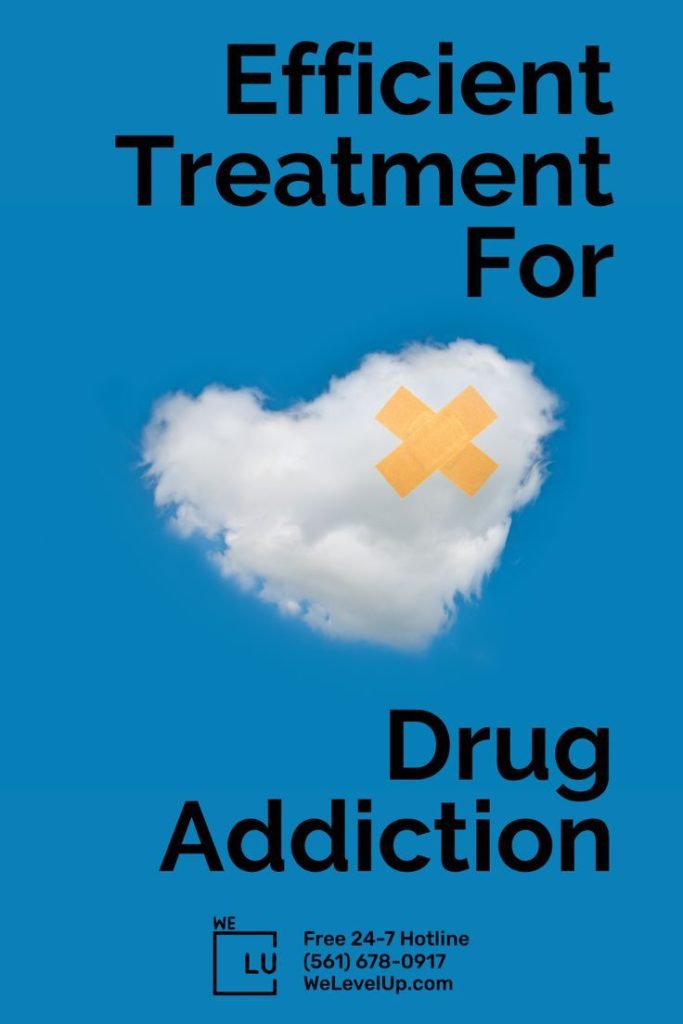
- Medication-Assisted Treatment (MAT): MAT involves using FDA-approved medications, such as methadone, buprenorphine, or naltrexone, to help individuals manage withdrawal symptoms, reduce cravings, and stabilize their recovery. It is often used in combination with counseling and behavioral therapies.
- Supportive Aftercare: Aftercare plays a crucial role in maintaining long-term recovery. Effective aftercare includes ongoing counseling, support groups (e.g., AA, NA), and access to community resources that provide ongoing support and relapse prevention strategies.
- Holistic Approaches: Evidence-based approaches incorporate complementary therapies, such as mindfulness practices, yoga, art therapy, and exercise, to address the physical, emotional, and spiritual aspects of recovery. These approaches can enhance overall well-being and provide additional tools for relapse prevention.
- Individualized Treatment Plans: Effective treatment recognizes that each individual’s journey is unique and tailors treatment plans to their specific needs. To provide comprehensive and targeted care, personalized treatment plans consider cultural background, trauma history, and social support systems.
First-class Facilities & Amenities
World-class High-Quality Addiction & Mental Health Rehabilitation Treatment
Rehab Centers TourRenowned Addiction Centers. Serene Private Facilities. Inpatient rehab programs vary.
Addiction Helpline(844) 597-1011Proven recovery success experience, backed by a Team w/ History of:
15+
Years of Unified Experience
100s
5-Star Reviews Across Our Centers
10K
Recovery Success Stories Across Our Network
- Low Patient to Therapist Ratio
- Onsite Medical Detox Center
- Comprehensive Dual-Diagnosis Treatment
- Complimentary Family & Alumni Programs
- Coaching, Recovery & Personal Development Events
We Level Up Center For Substance Abuse Treatment
Renowned as a top-tier addiction rehab facility nationwide, our unwavering commitment is to deliver exceptional substance abuse treatment. We consistently meet the rigorous standards established by the Joint Commission (JCAHO) and proudly hold their reputable Gold Seal accreditation as a testament to our excellence as an addiction rehab center.
We Level Up Mental Health And Substance Abuse Treatment Centers
The We Level Up treatment centers have emerged as a rapidly expanding network of medical detox, mental health, and addiction treatment facilities nationwide. Renowned for our exceptional quality, We Level Up offers top-rated behavioral rehab centers that encompass comprehensive substance abuse programs and on-site detox services for various substances. Our patients confront significant challenges associated with drug addiction, alcoholism, and mental health disorders, and we believe in the importance of providing intensive, personalized care to guide them toward sobriety, improved health, and overall well-being.

We Level Up New Jersey
Drug & Alcohol Addiction Treatment Center w/Detox
Licensed & Accredited w/ 5-star reviews.- Inpatient addiction rehab center w/medical detox
- Addiction treatment and detox for alcohol, benzo, heroin, opioid, and more.
- Secondary mental health treatment available as part of our dual diagnosis programs.

We Level Up Washington
Premier Behavioral Health Treatment Center
Licensed & Accredited w/ 5-star reviews.- Inpatient mental health treatment center
- Therapy for depression, anxiety, trauma, bipolar disorder, PTSD, and more.
- Dual diagnosis rehab programs available

We Level Up California
Drug & Alcohol Addiction Treatment Center w/Detox
Licensed & Accredited w/ 5-star reviews.- Inpatient addiction rehab center w/medical detox
- Addiction treatment and detox for alcohol, benzo, heroin, opioid, and more.
- Secondary mental health treatment available as part of our dual diagnosis programs.
For more information about the services offered through We Level Up’s national drug treatment, alcohol rehab, and detoxification programs, please contact the We Level Up Treatment specialists and check the list of our top-notch rehab centers below:
The We Level Up treatment centers were primarily established to promote long-term success in addiction recovery. Our caring therapists and staff are committed to empowering clients, their families, and alumni, fostering connection, growth, and life improvement through recovery. Our private and comfortable rehab facilities are available for inquiries 24 hours daily.
World-class, Accredited, 5-Star Reviewed, Effective Addiction & Mental Health Programs. Complete Behavioral Health Inpatient Rehab, Detox plus Co-occuring Disorders Therapy.
CALL(844) 597-1011End the Addiction Pain. End the Emotional Rollercoaster. Get Your Life Back. Start Drug, Alcohol & Dual Diagnosis Mental Health Treatment Now. Get Free No-obligation Guidance by Substance Abuse Specialists Who Understand Addiction & Mental Health Recovery & Know How to Help.
Top 3 Treatments Of Substance Abuse FAQs
-
Does insurance cover substance abuse treatment?
Insurance coverage for the treatment varies based on the insurance plan and provider. Many insurance plans offer coverage for substance abuse treatment, including inpatient and residential services, but the extent of coverage and specific services can vary widely.
-
How long does substance abuse treatment last?
The duration of the treatment substance abuse program is determined by various factors such as the individual’s needs, the severity of the addiction, and the treatment approach used. Treatment programs can range from a few weeks to several months or even longer, with some individuals requiring ongoing support and aftercare services beyond the initial treatment phase.
-
How much does substance abuse treatment cost?
The cost of treatment for substance abusers depends on multiple factors, including the type of treatment program, the duration of treatment, the geographical location, and the specific services provided. Treatment costs can range from options covered by insurance to private facilities, and there are also low-cost or sliding-scale fee options available for those with financial constraints.
Substance Abuse Treatment Criteria. How to Get a Free Substance Abuse Evaluation? Hotline & Resources.
Determining if someone needs substance abuse treatment requires careful observation and assessment. Look for signs such as:
- Losing control over substance use.
- Increased tolerance.
- Withdrawal symptoms.
- Neglect of responsibilities or relationships.
- Continued use despite negative consequences.
It is essential to encourage open and honest communication with the person, express concerns, and recommend seeking professional help from a healthcare provider or addiction specialist to determine and develop an appropriate treatment plan accurately.
If you or a loved one is struggling with alcohol or other substance use disorder(s), call for a FREE consultation 24/7 at (561) 678-0917
Get FREE addiction treatment insurance check – https://welevelup.com/rehab-insurance/
Experience Transformative Recovery at We Level Up Treatment Centers.
See our authentic success stories. Get inspired. Get the help you deserve.
Start a New Life
Begin with a free call to an addiction & behavioral health treatment advisor. Learn more about our dual-diagnosis programs. The We Level Up Treatment Center Network delivers recovery programs that vary by each treatment facility. Call to learn more.
- Personalized Care
- Caring Accountable Staff
- World-class Amenities
- Licensed & Accredited
- Renowned w/ 100s 5-Star Reviews
We’ll Call You
Search We Level Up Substance Abuse Treatment, Mental Health Topics & Resources
Sources
[1] Jahan AR, Burgess DM. Substance Use Disorder. [Updated 2023 Apr 29]. In: StatPearls [Internet]. Treasure Island (FL): StatPearls Publishing; 2023 Jan-. Available from: https://www.ncbi.nlm.nih.gov/books/NBK570642/
[2] Institute of Medicine (US) Committee on Opportunities in Drug Abuse Research. Pathways of Addiction: Opportunities in Drug Abuse Research. Washington (DC): National Academies Press (US); 1996. 8, Treatment. Available from: https://www.ncbi.nlm.nih.gov/books/NBK232966/
[3] Find Help and Treatment – Substance Abuse and Mental Health Services Administration (SAMHSA)
[4] SAMHSA Announces National Survey on Drug Use and Health (NSDUH) Results Detailing Mental Illness and Substance Use Levels in 2021 – US Department of Health and Human Services (.gov)
[5] Addiction – Healthy People 2030 Available from: https://health.gov/healthypeople/objectives-and-data/browse-objectives/addiction
[6] Substance Use Treatment For Veterans – Veterans Affairs (.gov)
[7] Substance Abuse, Behavioral Disorder, and Mental Health Counselors – US Bureau of Labor Statistics (.gov)
[8] Pasha AK, Chowdhury A, Sadiq S, Fairbanks J, Sinha S. Substance use disorders: diagnosis and management for hospitalists. J Community Hosp Intern Med Perspect. 2020 May 21;10(2):117-126. Doi 10.1080/20009666.2020.1742495. PMID: 32850046; PMCID: PMC7425622.
[9] Mental Health and Substance Use Disorders – Substance Abuse and Mental Health Services Administration (SAMHSA)
[10] Substance Use and Co-Occurring Mental Disorders – National Institute of Mental Health (NIMH)
